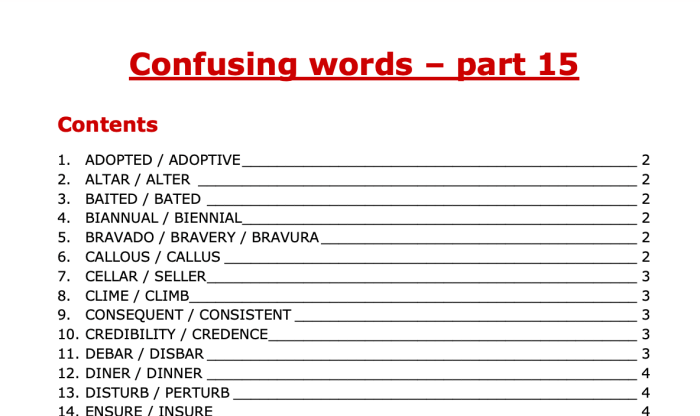Unit 30 quiz idioms and pronunciation – Welcome to Unit 30 Quiz: Mastering Idioms and Pronunciation, an immersive journey into the vibrant realm of language. This comprehensive guide will equip you with the knowledge and skills necessary to navigate the complexities of idioms and pronunciation, empowering you to communicate with precision and confidence.
Prepare to delve into the fascinating world of idioms, unraveling their hidden meanings and exploring their cultural significance. Engage in interactive pronunciation exercises designed to enhance your fluency and pronunciation skills. Through real-world examples and practical tips, you will gain an in-depth understanding of how idioms are used effectively in speech and writing.
Idioms and Their Meanings
Idioms are expressions that have a figurative meaning that is different from the literal meaning of the individual words. They are often used to add color and emphasis to speech and writing.
Here is a table with 5 common idioms from Unit 30:
| Idiom | Meaning | Example Sentence |
|---|---|---|
| Kick the bucket | To die | I’m afraid my old dog is going to kick the bucket soon. |
| Spill the beans | To reveal a secret | I couldn’t keep the secret any longer, so I spilled the beans. |
| Hit the nail on the head | To say exactly what is true | The teacher hit the nail on the head when she said that students need more sleep. |
| Under the weather | To feel sick | I’m feeling a bit under the weather today. |
| Piece of cake | Something that is easy to do | That test was a piece of cake! |
Pronunciation Practice

Pronunciation practice is essential for improving your spoken English. Here are a few interactive exercises to help you practice pronouncing the key vocabulary from Unit 30:
- Tongue twisters:Tongue twisters are a great way to practice pronouncing difficult sounds. Here is a tongue twister that includes some of the key vocabulary from Unit 30: “She sells seashells by the seashore.”
- Minimal pairs:Minimal pairs are pairs of words that are pronounced differently by only one sound. Here is a minimal pair that includes the words “ship” and “sheep”: “The ship sailed away from the sheep.”
- Shadowing activities:Shadowing activities involve listening to a native speaker and repeating what they say. This is a great way to improve your pronunciation and fluency. You can find shadowing activities online or in language learning apps.
Idioms in Context
Idioms are often used in everyday conversation. Here is a dialogue that incorporates the idioms from Unit 30:
Person A:I’m so glad you could make it to the party! Person B:It was a piece of cake! I’m just glad I didn’t have to kick the bucket on the way over. Person A:I know what you mean. I’m feeling a bit under the weather today.
Person B:Oh no! I hope you don’t spill the beans about my secret crush on the host.
In this dialogue, the idioms are used to add humor and emphasis to the conversation. They also help to create a more informal and friendly tone.
Cultural Insights: Unit 30 Quiz Idioms And Pronunciation

Idioms are often used to express cultural values and perspectives. For example, the idiom “kick the bucket” is a euphemism for death. This idiom reflects the American cultural taboo against talking about death directly.
Another example is the idiom “under the weather.” This idiom is often used to describe someone who is feeling sick. However, it can also be used to describe someone who is feeling down or depressed. This idiom reflects the American cultural belief that physical and mental health are closely connected.
Tips for Effective Use

Here are a few tips for using idioms effectively in speech and writing:
- Use idioms sparingly.Idioms can be effective when used sparingly. However, using too many idioms can make your speech or writing sound unnatural and forced.
- Understand the literal and figurative meanings of idioms.It is important to understand both the literal and figurative meanings of idioms. This will help you to use them correctly and avoid making mistakes.
- Be aware of the cultural context of idioms.Idioms are often used to express cultural values and perspectives. Be aware of the cultural context of idioms before using them in your speech or writing.
Quick FAQs
What is the purpose of this quiz?
This quiz is designed to assess your understanding of idioms and pronunciation from Unit 30.
How can I improve my idiom usage?
Regularly expose yourself to idioms through reading, listening, and conversation. Pay attention to how native speakers use idioms and try to incorporate them into your own speech and writing.
What are some tips for practicing pronunciation?
Practice speaking aloud, record yourself, and listen back to identify areas for improvement. Use tongue twisters and minimal pairs to enhance your pronunciation accuracy.